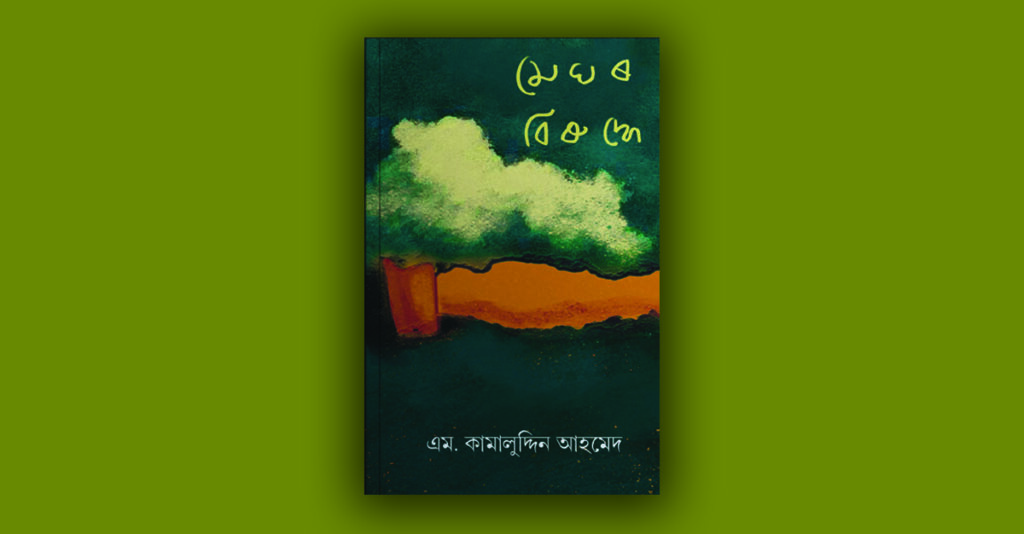Background of the Poetry Collection Meghar Biruddhe
M. Kamaluddin Ahmed

The poetry collection titled Meghar Biruddhe (2024) includes poems written between January 2022 and October 2024. This collection reflects a blend of personal inspiration, literary influence, and a deep engagement with contemporary issues. Let me share some of the contexts and inspirations behind these works.
The poem “Litchi” refers to the painter Titian, the renowned painter of 15th century Italy. Titian, a solitary figure like nature itself, was synonymous with color, light, and expression. His paintings were like poetry. Although Titian is referenced in the poem, the underlying theme is globalization. Around the time, I was deeply influenced by Michel Foucault’s (1926–1984) seminal work, The History of Sexuality, particularly the ideas explored in The Care of the Self. These readings shaped the conceptual framework of the poem “Ecstasy.”
Modernist poets often carry a map of the city alongside their hearts. The impact of urban life features prominently in my poetry, reflecting the experiences and emotions of navigating modern cities. Poems such as “In the City” and “The Blood-Soaked Existence” explore this connection:
You enter
Into the shopping mall
In its dazzling light
You taste
A new planet (The Blood-Soaked Existence)
My concern for ecology also finds a voice in this collection, with poems like “Vanishing”, “Sivsagar Pukhuri”, “Auspicious Moment of Leaves” and “Gauhati University”. These works convey a sense of urgency about ecological degradation and the tenuous relationship between humans and nature.
Throughout the collection, I experimented with detachment to varying degrees when expressing personal emotions. The poem “Remaining” was conceived during a period of political unrest, serving as a reflection of the chaos and turmoil of that time. The increasing dominance of information technology in our lives—often at odds with the natural world—served as the backdrop for poems like “Vision” and “Beyond the Planet”. As the clouds in the sky sow seeds of romanticism, do we not, nevertheless, continue to gaze upon them? My poetry stands against such clouds.
During the period of writing these poems, I was profoundly influenced by several critical essays that shaped my understanding of poetry. One such essay was “What Does Poetry Name?” by Octavio Paz (1914–1998), which provided a fundamental insight: poetry’s essence lies in language, where meaning and words are inseparable. Another essay that left an indelible impression on me was Terry Eagleton’s (born 1943) essay “What is Poetry?” which offered a fresh perspective on poetic conventions, referencing D.H. Lawrence’s “To Women, As Far As I’m Concerned,” a poem that boldly rejects traditional poetic tools. Additionally, Richard Gray’s essay “Poetry and the Subject of the Poem: Wallace Stevens” illuminated the structural strength inherent in poetry, further inspiring my exploration of form and meaning.
The creation of this collection would not have been possible without the support of Deepjyoti Baruah, a research scholar who played an integral role in the creative process. His immediate feedback on my drafts pushed me to reconsider and refine my poems, often leading to deeper insights. I extend my heartfelt gratitude and wish him continued intellectual growth.
An accomplished Assamese poet-critic and translator M Kamaluddin Ahmed (born 1966) is a University Professor. His poems have been included in collections published by Harper Collins and Penguin.